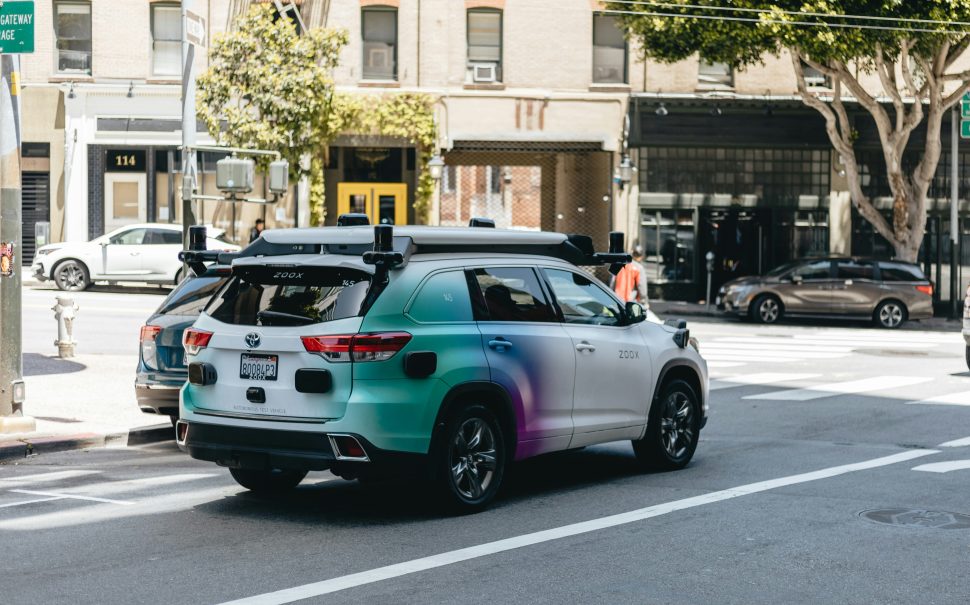Autonomous vehicles, commonly referred to as self-driving cars, are no longer a distant dream but a fast-approaching reality.
In fact, they are here already and many people are loving the vibes.
In Greater Manchester, it is posited that autonomous technology is set to transform how people move around the city, and thus, there is a need for the government to make proper preparations on how this technology can be harboured, to ensure a smooth transition and effective road usage between these AI cars and public transport.
This article looks to explore how self-driving cars could affect Manchester’s public transport in the near future.
Taking notes on the economic and environmental benefits, and some of the safety, regulatory concerns.
Testing autonomous vehicles in Manchester
Greater Manchester has not been left out of the UK’s growing interest in autonomous vehicle technology. Several trials and pilot projects have already taken place in the region.
These tests aim to assess how well self-driving cars can navigate the city’s roads, interact with pedestrians, and integrate into the current traffic systems.
For example, the UK government-funded Project Synergy recently conducted trials of driverless cars in cities like Manchester and Leeds.
These trials tested vehicles’ abilities to operate in real-world conditions, including busy streets, roundabouts, and varied weather.
The results are promising, with several reports indicating that the technology is progressing well.
At the moment, Manchester’s public transport system, including buses and trams, is highly effective, but the introduction of autonomous cars could make things better and enhance flexibility.
You can imagine a future where you no longer have to wait for a bus; instead, a self-driving car come picks you up at your doorstep, and drive you straight to your destination.
The benefits of local autonomous vehicles
These benefits are, of course, relatable and may slightly vary based on various factors.
- Autonomous vehicles can communicate with each other, so they won’t ever get to collide or cause hefty traffic jams.
- Since these cars follow strict algorithms, accidents would be minimal due to the absence of potential human errors.
- Self-driving vehicles can complement Manchester’s public transport by offering efficient last-mile services; there may be no need for large buses in certain areas anymore.
These benefits are relative to what the people of Greater Manchester stand to enjoy when self-driving vehicles become more rampant.
Now, those points notwithstanding, there are government initiatives as to how these vehicles should run.
Government initiatives on autonomous vehicles
The UK government is looking to position the country as a global leader in autonomous vehicle technology.
In fact, the Department for Transport has set an ambitious target to have fully autonomous cars on public roads by 2025.
This has led to the establishment of different initiatives to ensure that the necessary infrastructure, regulations, and safety measures are in place.
In Greater Manchester, authorities are closely collaborating with central government agencies to develop a regulatory framework that supports autonomous vehicles, including creating guidelines for how these vehicles will operate in busy city centres, setting up data-sharing systems to monitor performance, and addressing any public concerns related to safety.
Even so, Manchester has been chosen as one of the UK’s testbeds for the development of 5G networks, a key enabler of autonomous vehicles.
Self-driving cars will offer economic and environmental benefits for Manchester
The adoption of autonomous vehicles could bring about significant economic and environmental benefits to Greater Manchester.
One of the major advantages is the potential to create new jobs.
As this industry grows, there will be increased demand for skilled workers to design, maintain, and operate these high-tech vehicles.
This could lead to the creation of jobs in areas such as software development, engineering, and vehicle maintenance.
From an environmental standpoint, self-driving cars have the potential to reduce the city’s carbon footprint.
Autonomous cars are often electric, meaning they produce zero emissions.
If more people in Manchester shift to using self-driving electric cars, air quality in the city could improve significantly, reducing pollution-related health problems.
Safety and regulatory concerns
As exciting as the future of autonomous vehicles might be, it comes with several concerns and safety remains the biggest challenge.
Self-driving cars rely on a combination of sensors, cameras, and algorithms to make decisions on the road, but can they truly anticipate unpredictable human behavior, such as jaywalking or sudden lane changes?
Regulatory concerns also persist, such as how will insurance work if an autonomous vehicle is involved in an accident, and who will be held responsible in case of system failures?
These questions are still being debated by authorities and industry experts.
In Manchester, there are also concerns about the readiness of the infrastructure to support self-driving cars.
Roads will need to be equipped with sensors, and traffic signals will need to communicate with those vehicles.
This requires significant investment in the city’s transport infrastructure.
So far, Manchester has made significant progress toward preparing for the future of autonomous vehicles, but there is still much to be done.
The city’s transport infrastructure, which currently supports millions of commuters, will need to undergo major upgrades to accommodate this new technology.
What else?
Driverless vehicles will really intrigue us all. But at the moment, ICE vehicles, hybrids, and EVs are still the buzz, and if you own one like the Nissan Xtrail, you’re sure you’re having a “cheap-to-maintain” vehicle right there.
If you compare the Nissan Xtrail T32 gearbox oil with that of other vehicles, you will come to agree with this.
However, this doesn’t mean there are no other affordable cars within its range.
Source of information – blog.politics.manchester.ac.uk




